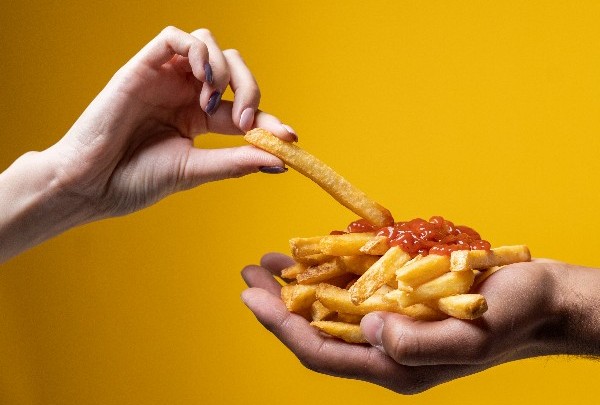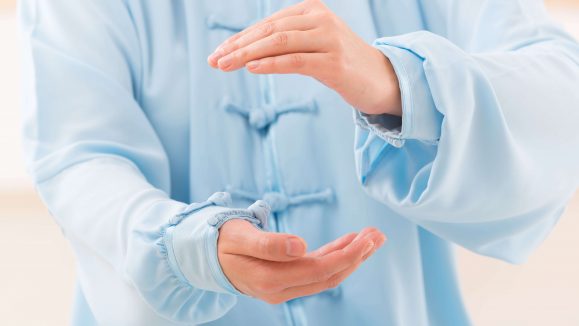Do you prefer ketchup with your french fries or mayonnaise? For most of us the answer is probably ketchup, but for our Dutch friends, the answer is most likely mayonnaise. Of course, those of us living in the year 3,000 know that the true condiment of choice is a mixture of both ketchup and mayonnaise.
And this blending of Dutch mayonnaise with internationalist ketchup is the perfect (and delicious) segway into our latest analogy for ESCRS & EURETINA 2020. A delectable mix of both the European Society of Cataract & Refractive Surgeons (ESCRS) and the European Society of Retina Specialists (EURETINA), the combined congress has been nearly as fun as if we were meeting in person in Amsterdam. Oodles of symposia, papers, film footage seminars were on offer, and we gobbled it all up.
Day 3 ended the congress on a high note with a wide range of events to attend. Some were more of the usual suspects you’d expect to encounter, whereas others were innovative and really stood out in a year of bumper online events. All in all we’re sad for the congress to end, but of course, excited to hopefully get back to normality in 2021.
Our hats are hot to the organizers from both ESCRS and EURETINA as it can’t have been easy to run combined events, especially during coronavirus. Both organizations used the same interface for their congress systems, which was one of, if not the most user friendly of all of this year’s online events. The system, which appeared like a perfect virtual representation of a real world conference hall, will no doubt be emulated by other events going into 2021.
The first session of the ESCRS Day 3 was a new one for the Media MICE team this year, so kudos for the original thinking. ESCRS president Prof. Dr. Rudy MMA Nuijts chaired the ‘You Make the Call’ Real-Time Reactions of Experts to Unseen Videos session. Prof. Dr. Nuijts, joined by a number of other participants, presented real world surgical case studies to the audience.
Switching places with surgeons
The audience would then vote on what they would do if presented with the case, after listening to both the presenter and other experts. We got some of the most fantastic surgical footage of the year plus real time interaction between doctors around the world. Technical glitches aside, this was one of the best concepts of the entire 2020 conference calendar.
Another standout of Day 3, this time coming from the EURETINA slate, was EURETINA Session 14: Decision Making in Challenging Cases. Similar to the interactive ESCRS session, this symposium presented unusual case studies ranging from focal laser treatment to retinal vascular abnormalities. Indeed most of the case studies presented were rather unusual in nature.
As you can imagine we found this to be rather exciting! We particularly enjoyed a section on rare hereditary retinal disease as this was an area of study some members of the Media MICE team were somewhat unfamiliar with. Thanks to Dr. Bart P Leroy, director of Ophthalmic Genetics and Retinal Degenerations at the Children’s Hospital of Philadelphia for this section.
Now as you can imagine, cataracts are one of the main focuses of the ESCRS congress but that doesn’t mean other conditions missed out. Glaucoma was covered in a number of posters at the congress, including Aqueous Humour Flare in Glaucoma Patients Before and After Surgery. Authored by Dr. Giedre Pakuliene at the Lithuanian University of Health Sciences, the paper examines aqueous flare over a six-month period.
The study examined patients with cataracts and open-angle glaucoma, and compensated intraocular pressure (IOP). It found that there was moderate positive correlation between the number of glaucoma medications used and aqueous flare pre-surgery, and a weak correlation between the same at six months after surgery. Well worth noting for all our glaucoma specialists out there.
We’re also all about research that takes a broader perspective on ophthalmology and how it impacts on other areas. We’ve seen more research like this pop up, no doubt due to the coronavirus pandemic, and Choroidal Thickness in Patients with Cardiovascular Disease: A Review represents a good example of this trend. The researchers behind the paper were led by lead author Dr. Shanna Yeung from the University of British Columbia.
The poster reported a number of results including that acute hypertension includes choroidal thickness, however chronic hypertension reduces it, as does coronary heart disease and carotid artery stenosis. The researchers called for more research into the issue, noting the relative paucity of studies into the issue. Specifically, future studies should focus on the value of choroidal thickness, vascular density and biomarkers of cardiovascular disease.
So long, farewell, tot ziens and goodbye
Of course it wouldn’t have been an ophthalmology conference without some award winning film footage and ESCRS didn’t disappoint. Over 150 videos were submitted to the congress and were split into six categories, with three prizes available in each category. Each of the winners deserves recognition, but we’d like to point out in particular Small Pupil in Cataract Surgery in the education category, by Dr. Jiří Cendelín of the Charles University in Prague, Czech Republic.
So that’s it for ESCRS & EURETINA 2020, we hope you enjoyed it as much as we have. Everyone on the Media MICE team is looking forward to some normality next year and to see you all again in person, so make sure you stay subscribed for the latest news and updates in ophthalmology as we weather the coronavirus storm. Until next time!



